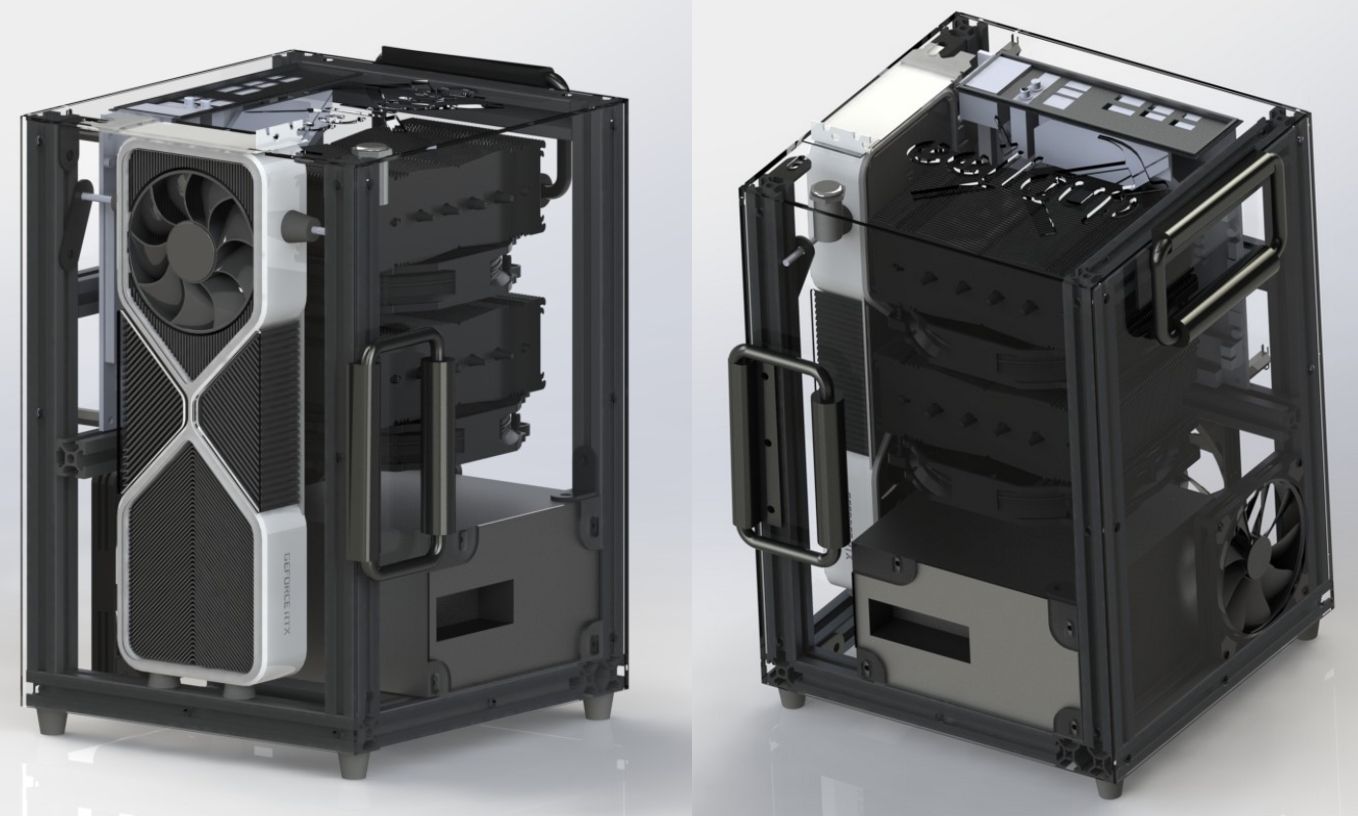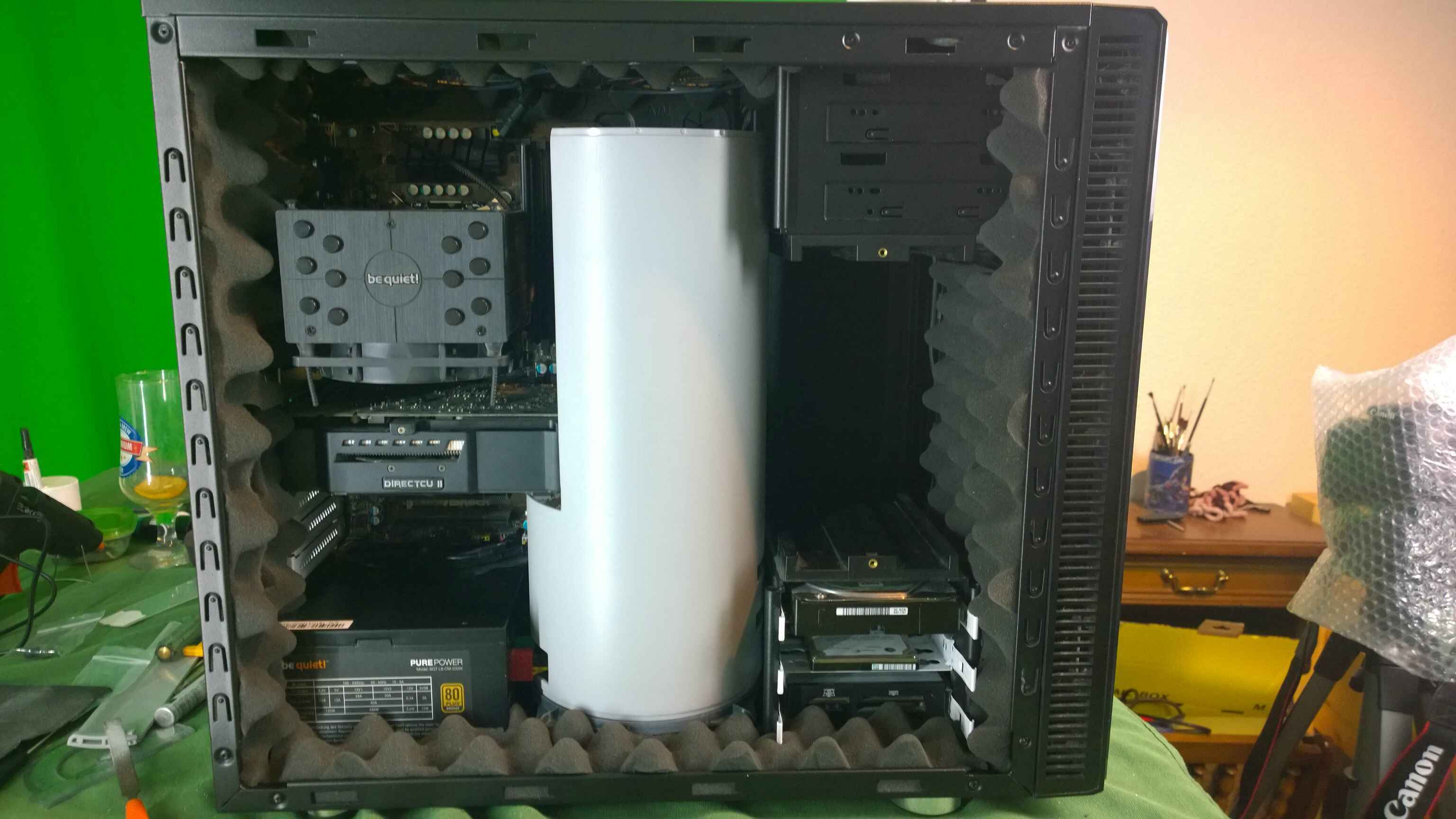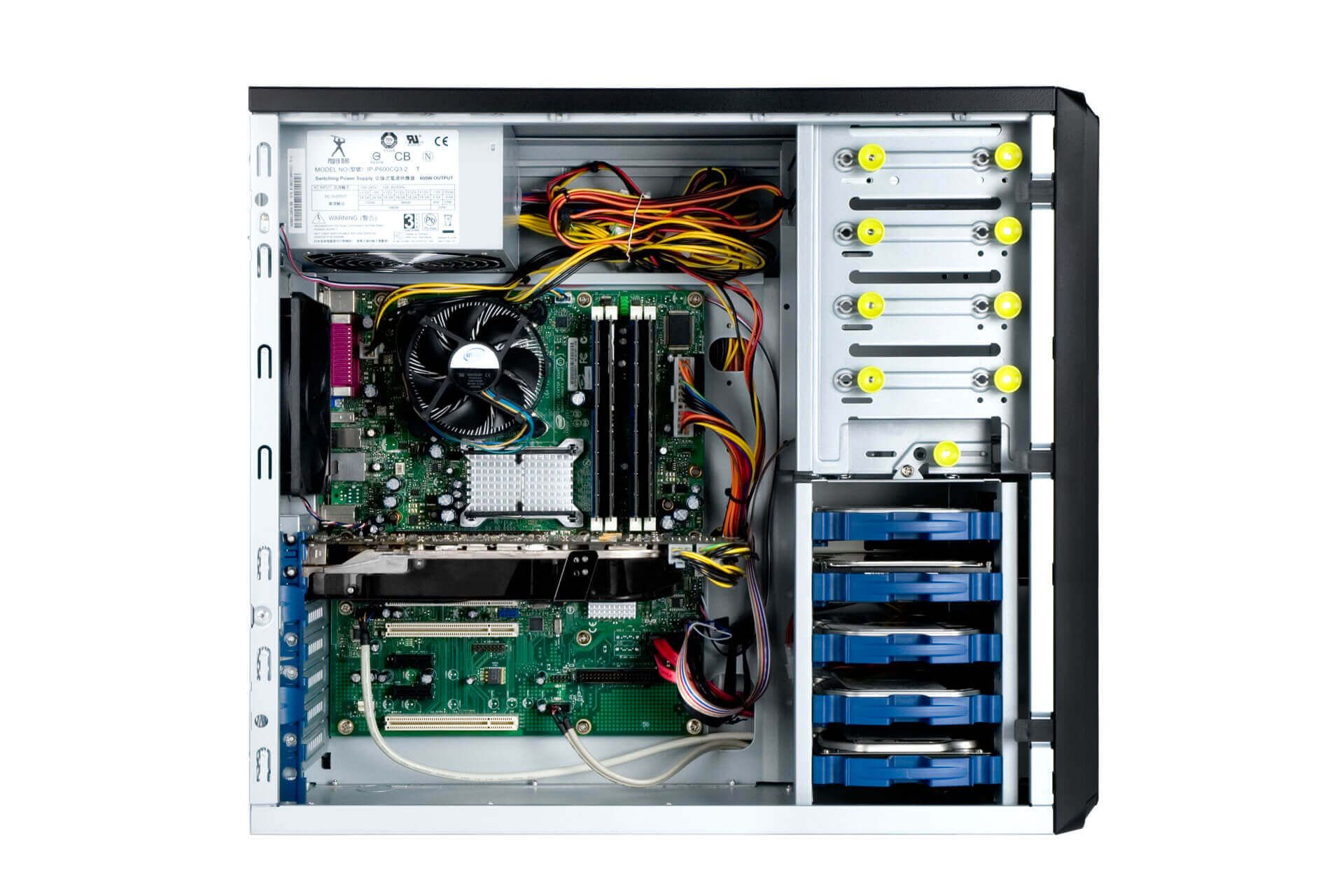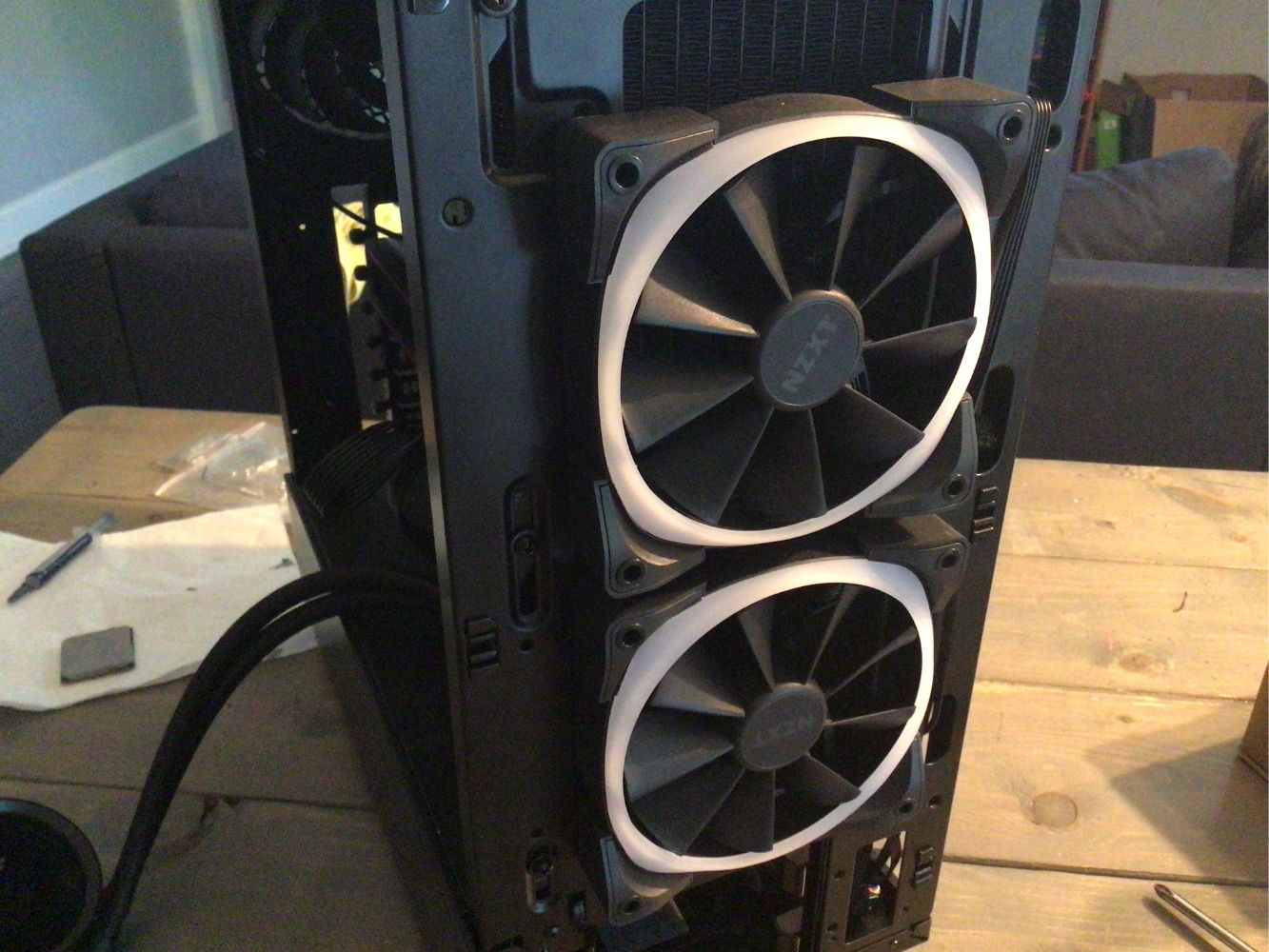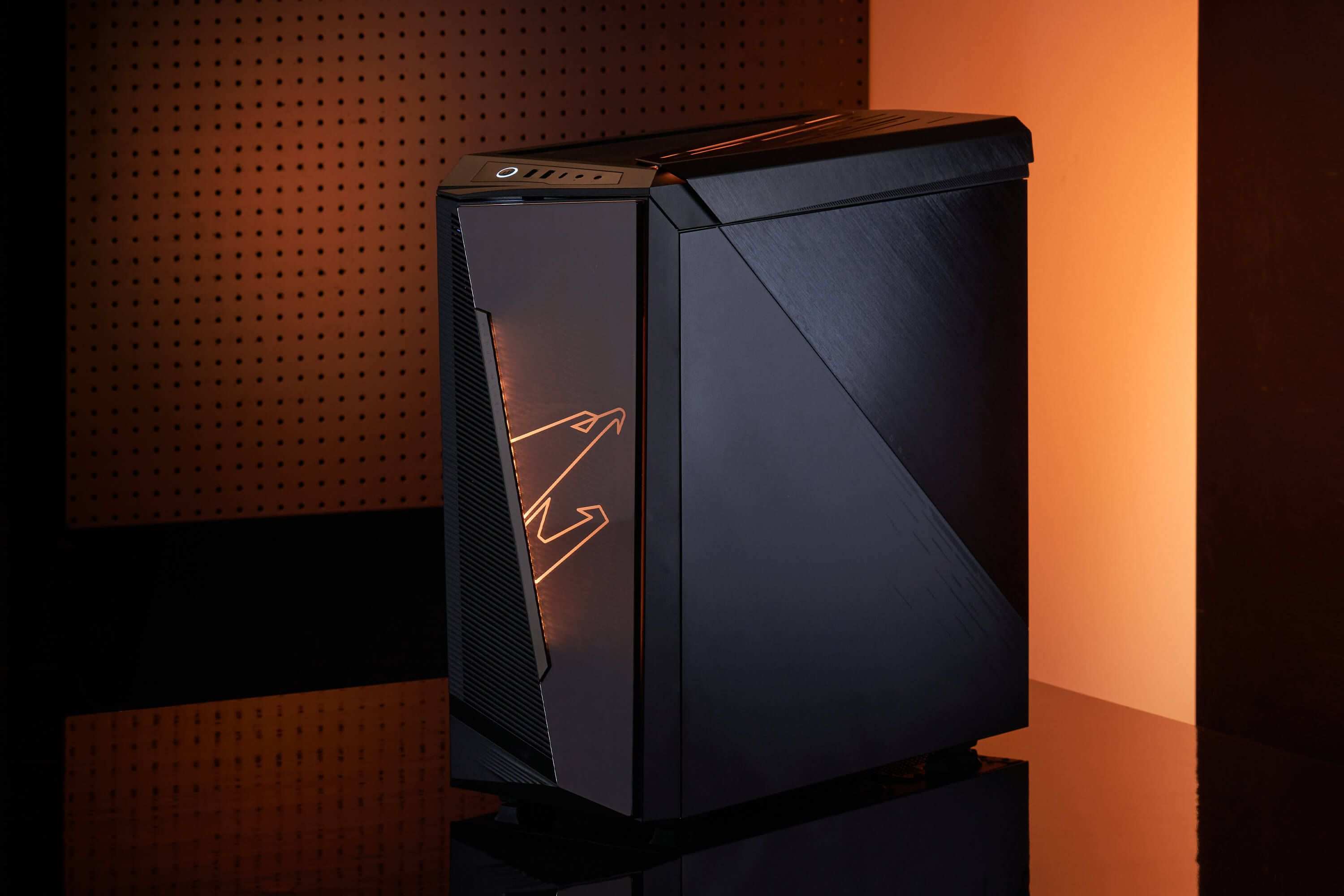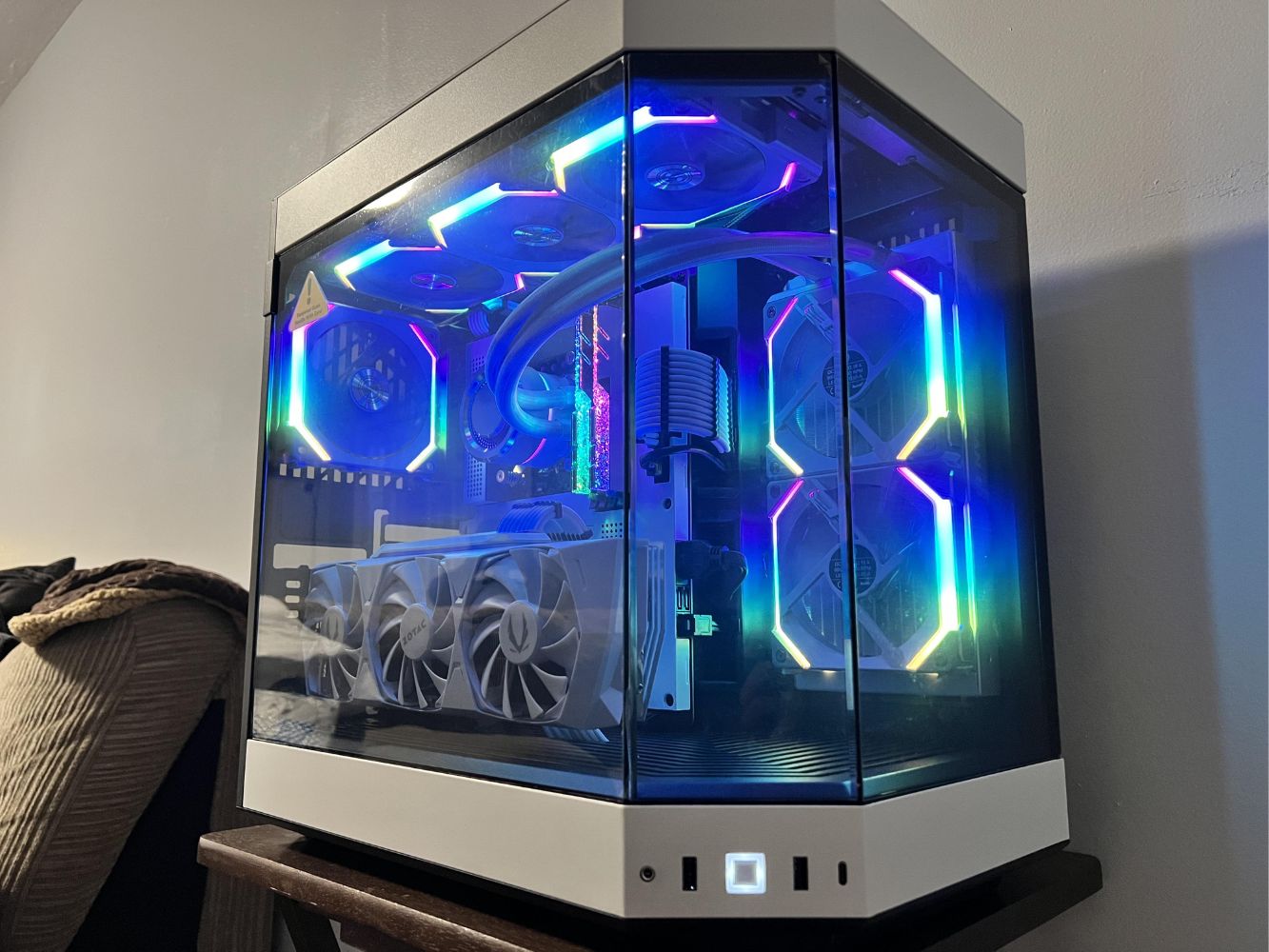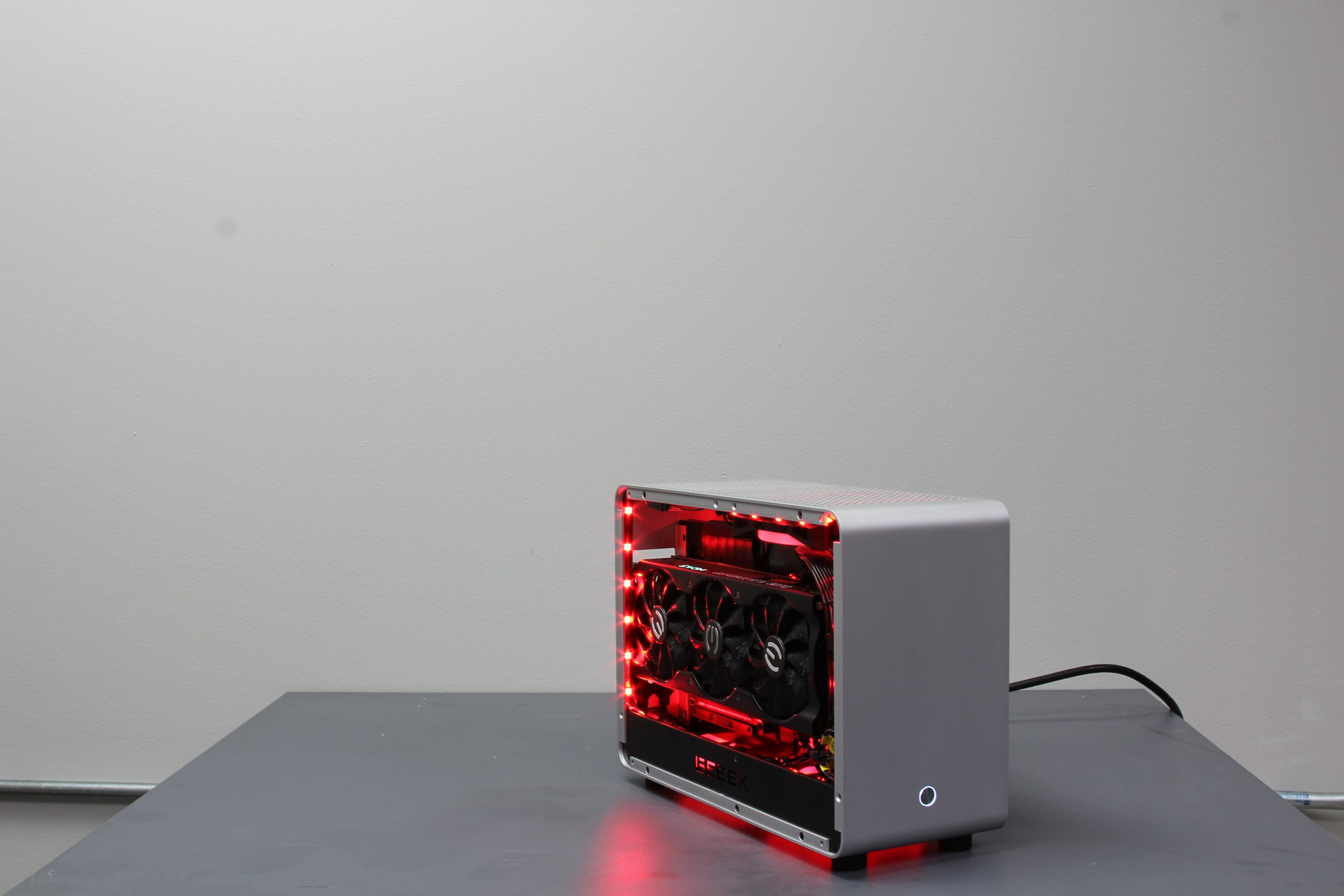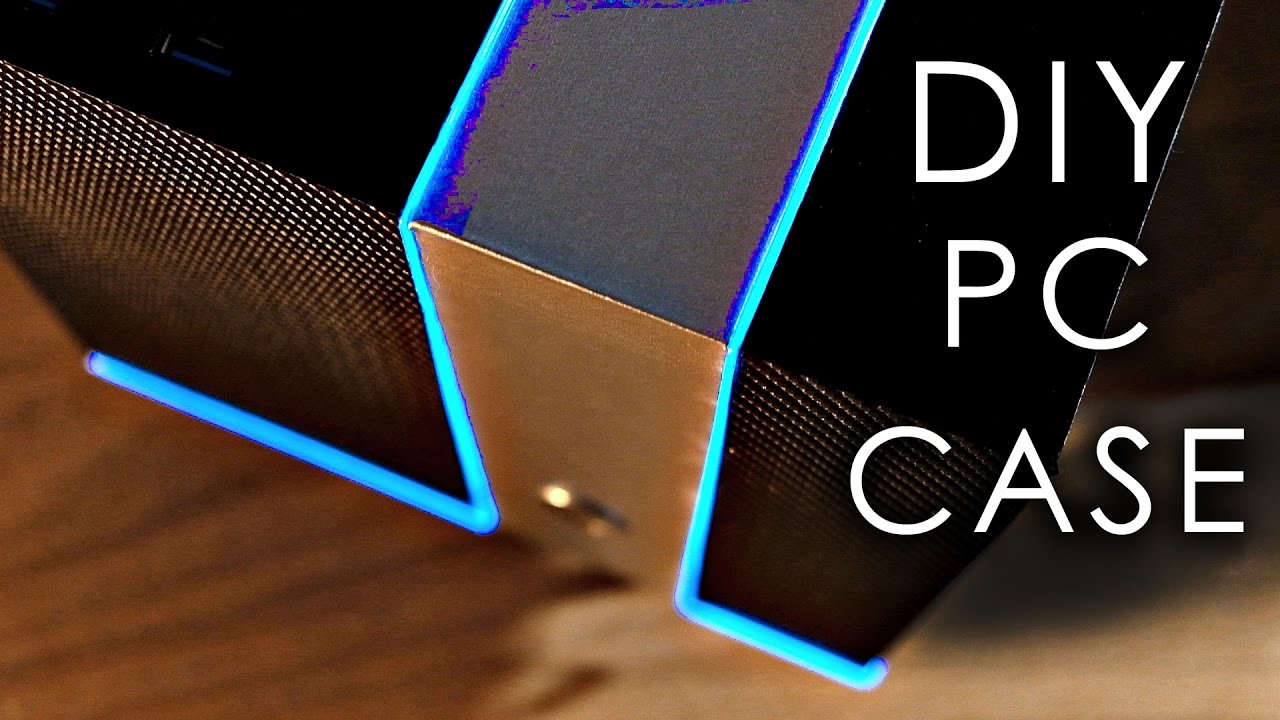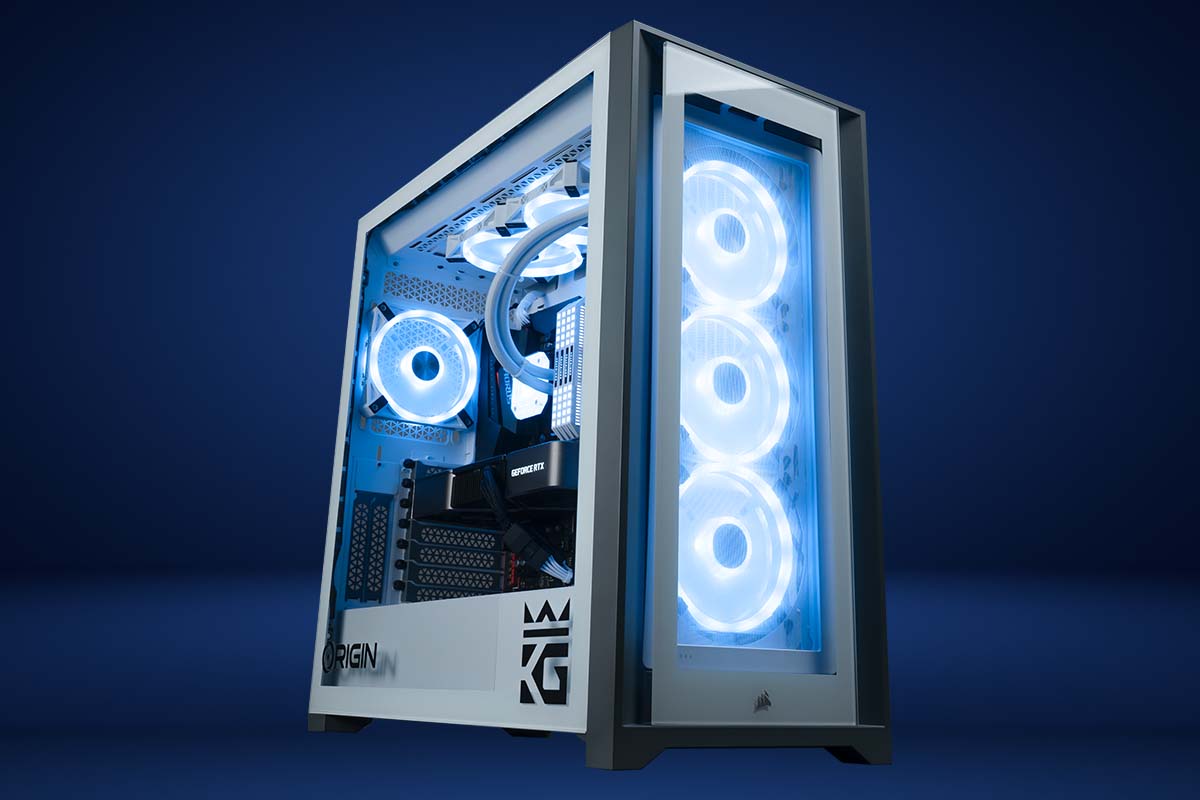Introduction
A PC case, also known as a computer case or chassis, is an essential component of a desktop computer. It houses and protects the various internal hardware components, such as the motherboard, processor, and storage devices. When building or customizing a PC, one important factor to consider is the material used to construct the case.
The choice of material for a PC case can impact factors such as durability, cooling performance, weight, aesthetics, and cost. Different materials offer varying degrees of strength, heat dissipation, and design flexibility. In this article, we will explore some of the common materials used to make PC cases and examine their characteristics.
Before diving into the different materials, it is important to note that modern PC cases often utilize a combination of materials. For example, a case might have a steel frame for strength and stability, while incorporating tempered glass panels for a sleek and transparent look. This hybrid approach allows manufacturers to maximize the advantages of each material.
Now, let’s take a closer look at the various materials commonly used in PC case construction.
Metal
Metal, particularly steel and aluminum, is one of the most popular materials used in PC case construction. Metal cases offer excellent durability, sturdiness, and protection for the internal components. They are also effective at dissipating heat, which is crucial for maintaining optimal performance and preventing overheating.
Steel cases, often made from cold-rolled steel or sometimes stainless steel, provide superior strength and rigidity. They are less prone to bending or warping and offer better protection against impacts or accidents. Steel cases tend to have a higher weight compared to other materials, which can be both advantageous and disadvantageous. On the positive side, the weight contributes to their stability, reducing the risk of tipping over. On the downside, they can be more challenging to transport.
Aluminum cases, on the other hand, are known for their lightweight nature. They are typically crafted from aluminum alloys, which offer a good balance between strength and weight. Aluminum cases are easier to carry and transport, making them a popular choice for enthusiasts who frequently attend LAN parties or gaming events. Additionally, aluminum has natural thermally conductive properties, aiding in heat dissipation from the components.
Both steel and aluminum cases can be found in various designs, ranging from minimalist and understated to bold and futuristic. They are often available in different color options, allowing users to match them with their desired aesthetic preferences.
When considering a metal PC case, it is important to note that they can be more expensive compared to cases made from other materials. The cost is influenced by factors such as the quality of the metal, design intricacy, and additional features. However, the investment is worthwhile for users seeking a robust and visually appealing case that offers excellent protection for their valuable hardware.
Plastic
Plastic is another commonly used material for PC case construction. It offers several advantages such as affordability, lightweight, and design versatility. Plastic cases are typically made from ABS (acrylonitrile butadiene styrene) or polycarbonate, which are known for their durability and impact resistance.
One of the primary benefits of plastic cases is their low cost. They are generally more affordable compared to cases made from metal or other materials. This makes them an attractive option for budget-conscious users who still want a reliable and functional PC case.
In addition to being cost-effective, plastic cases are lightweight, which makes them easier to transport and move around. This can be especially advantageous for users who need to frequently relocate their computer system.
Another advantage of plastic cases is their design flexibility. Plastic is a moldable material, allowing manufacturers to create cases with various shapes, sizes, and styles. This means that users have a wide range of options when it comes to choosing a plastic case that matches their aesthetic preferences.
However, there are a few considerations to keep in mind when opting for a plastic case. Plastic is generally not as sturdy or impact-resistant as metal. While it can adequately protect the internal components, it may not offer the same level of protection against accidental bumps or drops as a steel or aluminum case.
Furthermore, plastic is not as efficient at dissipating heat as metal. This can result in slightly higher internal temperatures, requiring users to pay attention to proper airflow and cooling solutions to prevent overheating.
Overall, plastic cases are a great choice for users on a budget who prioritize lightweight design and design flexibility. While they might not offer the same level of durability or heat dissipation as metal cases, they still provide sufficient protection for the internal components and come in a variety of appealing designs.
Aluminum
Aluminum is a highly favored material when it comes to PC case construction. It offers an ideal combination of strength, lightweight, and aesthetic appeal. Aluminum cases are often made from aluminum alloy, which provides excellent durability and heat dissipation capabilities.
One of the standout features of aluminum cases is their lightweight nature. Aluminum is significantly lighter than steel, making it easier to transport and handle. This is particularly beneficial for users who frequently move or transport their computer systems, such as gamers or professionals attending LAN parties or events.
In addition to being lightweight, aluminum cases have excellent structural integrity. The material is resistant to bending or warping, ensuring that the internal components remain protected. Aluminum cases often have a sleek and modern design, with clean lines and minimalist aesthetics. They lend a professional and high-end look to any computer setup.
Aluminum is also an excellent conductor of heat, which means that it naturally aids in heat dissipation from the internal components. This benefit allows for better thermal management, helping to keep the computer running cool even during demanding tasks or overclocking.
Moreover, aluminum cases are highly customizable. They are often available in different color options and finishes, allowing users to personalize their computer setup according to their preferences. Some aluminum cases also feature tempered glass side panels, providing a glimpse into the internal components and adding a touch of elegance.
However, it’s worth noting that aluminum cases can be more expensive compared to other materials like plastic. The cost is influenced by several factors, including the quality of the aluminum used, the design intricacy, and any additional features or customization options.
Overall, aluminum cases are an excellent choice for users who value a lightweight, durable, and visually appealing PC case. Their superior heat dissipation capabilities, combined with their sleek design options, make them a popular choice among enthusiasts and professionals who want both form and function.
Tempered Glass
Tempered glass has gained popularity in recent years as a material for PC case panels. Known for its sleek and modern look, tempered glass offers a transparent view of the internal components, adding a touch of elegance to any computer setup.
One of the main benefits of tempered glass cases is their aesthetic appeal. They create a visually striking display by showcasing the carefully arranged components, RGB lighting, or unique cooling solutions inside the case. This makes them a popular choice among gamers and PC enthusiasts who want to showcase their build and create a visually captivating setup.
Moreover, tempered glass is highly durable and resistant to scratches, cracks, and shattering. It undergoes a special manufacturing process that strengthens the glass, making it less likely to break or splinter into sharp pieces. This ensures the safety of the user and the longevity of the case.
In terms of functionality, tempered glass panels provide better visibility and easier access to the internal components. This makes it more convenient to check the status of the hardware, perform maintenance, or showcase any custom modifications made to the system.
However, there are a few considerations to keep in mind when opting for a tempered glass case. Firstly, tempered glass is heavier than other materials like plastic or aluminum, which can make the case overall heavier and more challenging to handle. Transporting the case requires extra care due to the fragility of glass.
Additionally, tempered glass is not as effective in dissipating heat compared to materials like metal. This means that proper cooling solutions, such as fans or liquid cooling systems, need to be in place to prevent overheating of the internal components. Some tempered glass cases address this by incorporating ventilation options, such as mesh panels or airflow-focused designs.
Overall, tempered glass cases are a great choice for users who prioritize aesthetics and want to create a visually stunning showcase for their PC build. The combination of durability and transparency offers a unique and modern feel, allowing users to proudly display their hardware and customizations. However, it’s important to consider the weight and heat dissipation limitations of tempered glass when making a decision.
Wood
Wood is a less common but distinctive material used in PC case construction. Choosing a wooden case adds a unique and rustic charm to a computer setup, and it appeals to those who appreciate a natural aesthetic.
Wooden cases are often made from high-quality wood, such as oak, walnut, or bamboo, ensuring durability and longevity. The use of wood adds a warm and organic feel to the overall appearance, creating a standout piece that stands out from the typical metal or plastic cases.
One of the advantages of wood cases is their excellent natural noise reduction properties. Wood absorbs and dampens sound vibrations, helping to minimize noise generated by internal fans or other components, resulting in a quieter computing experience.
In terms of heat dissipation, wood fares differently compared to materials like metal. Wood is an insulator, meaning it doesn’t conduct heat as effectively. This can result in slightly higher internal temperatures. However, modern wooden cases often incorporate ventilation options, such as strategically placed airflow channels or perforated panels, to aid in heat dissipation.
Wooden cases typically provide ample space and versatility for customization. Wood is a highly moldable material, allowing for the creation of unique shapes and designs. Some wooden cases even feature handcrafted details or intricate engravings, making them true works of art.
However, there are a few considerations to keep in mind when considering a wooden case. Firstly, wood is generally heavier than materials like plastic or aluminum. This can make the overall case weightier and potentially more challenging to transport.
Additionally, wood is more susceptible to damage from moisture and humidity compared to other materials. It’s important to ensure that the wooden case is properly sealed and maintained to protect against these potential risks.
Overall, wooden cases offer a distinct and natural aesthetic that appeals to individuals looking for a unique and eye-catching PC case. With proper ventilation and maintenance, a wooden case can provide not only a visually stunning addition to a computer setup but also a quieter computing experience.
Carbon Fiber
Carbon fiber is a high-performance material that has gained popularity in various industries, including PC case construction. With its lightweight yet incredibly strong properties, carbon fiber offers several advantages for those seeking a durable and visually striking PC case.
One of the most prominent benefits of carbon fiber cases is their exceptional strength-to-weight ratio. Carbon fiber is known for being incredibly lightweight while maintaining excellent structural integrity. This makes carbon fiber cases ideal for users who prioritize portability and want a sturdy yet easy-to-carry PC case.
Moreover, carbon fiber is highly resistant to impact and bending, offering remarkable protection for the internal components. Its durability ensures that the case can withstand accidental drops or bumps, providing peace of mind for users concerned about the safety of their hardware.
In addition to its strength, carbon fiber also has remarkable heat resistance properties. It can dissipate heat efficiently and effectively, making it a suitable material for high-performance systems that generate significant heat. The excellent heat dissipation capabilities of carbon fiber cases contribute to the overall cooling of the PC, preventing any thermal throttling or overheating issues.
Carbon fiber cases are also known for their visually appealing aesthetics. The distinct fiber weave pattern adds a unique texture and sleekness to the case, creating a modern and high-end look. Carbon fiber cases are often available in a range of finishes, from matte to glossy, allowing users to choose the style that aligns with their preferences.
However, it’s important to note that carbon fiber cases tend to be more expensive compared to other materials. The high manufacturing costs and intricate production processes contribute to their price tag. This cost is often justified by the premium quality and unique properties offered by carbon fiber.
Overall, carbon fiber cases are an excellent choice for users who prioritize a lightweight, durable, and visually striking PC case. Their exceptional strength-to-weight ratio, heat resistance, and sleek aesthetics make them an ideal option for enthusiasts and professionals looking for a high-performance and eye-catching case.
Acrylic
Acrylic is a versatile material that is commonly used in PC case construction as an alternative to glass. It offers several advantages, including affordability, lightweight design, and excellent transparency. Acrylic cases are an attractive option for users who want a sleek and modern look without the weight and fragility associated with glass.
One of the main benefits of acrylic cases is their cost-effectiveness. They are generally more affordable compared to tempered glass or metal cases, making them a budget-friendly choice for users. This affordability allows users to allocate more of their budget towards other components of their computer system.
In addition to being cost-effective, acrylic cases are lightweight. They are typically much lighter than glass or metal cases, making them easier to transport and handle. This can be particularly advantageous for users who frequently move or attend LAN parties.
Another advantage of acrylic cases is their transparency. Acrylic has excellent clarity, allowing for a clear view of the internal components of the PC. This makes it easier to showcase RGB lighting, custom cable management, or unique hardware configurations. Acrylic cases are popular among PC enthusiasts who want to display their build in an aesthetically pleasing way.
However, there are a few considerations to keep in mind when opting for an acrylic case. Acrylic is not as durable or scratch-resistant as tempered glass or metal. It is more susceptible to scratching or cracking if not handled carefully. Extra caution should be taken during transportation to prevent any damage to the case.
Acrylic also has lower heat resistance compared to materials like metal or glass. While it can adequately dissipate heat, it may not offer the same level of thermal management as other materials. Ensuring proper airflow and utilizing adequate cooling solutions is essential to prevent overheating of the internal components.
Overall, acrylic cases provide an affordable and lightweight option for users who want a sleek and transparent PC case. Their transparency allows for an impressive display of the internal components, while their cost-effectiveness makes them an appealing choice for users on a budget. By handling with care and ensuring proper cooling, users can enjoy the benefits of an acrylic case while showcasing their unique computer build.
3D Printed Materials
3D printing has revolutionized the manufacturing industry, and it has even made its way into the realm of PC case construction. 3D printed cases offer a wide range of possibilities and advantages, including customization options, unique designs, and the ability to create complex shapes that may not be feasible with other manufacturing methods.
One of the key benefits of 3D printed cases is the ability to customize and personalize the design. With 3D printing technology, users have the freedom to create their own unique case designs or modify existing ones to fit their specific requirements. This level of customization allows for truly one-of-a-kind cases that can reflect individual preferences, branding, or specific hardware needs.
3D printing also enables the creation of complex shapes and intricate details. Unlike traditional manufacturing methods, where mass production may limit the design possibilities, 3D printing allows for intricate patterns, unique textures, and complex geometries. This opens up a world of creativity for users who want to make a bold statement or incorporate specific design elements into their PC case.
Additionally, 3D printing offers flexibility in material choice. Depending on the type of 3D printer used, various materials can be used to create the case. This includes plastics, resins, and even metal filaments. Users can select the material that best suits their desired look, durability, and heat dissipation requirements.
While 3D printed cases provide many advantages, there are a few considerations to keep in mind. The quality and strength of the case depend on the chosen printing material and the printer’s capabilities. Some 3D printed materials may not offer the same level of durability as traditional materials like metal or sturdy plastics.
Furthermore, the manufacturing process of 3D printing can be time-consuming. Depending on the complexity of the design and the quality settings used, the printing process can take several hours or even days to complete. If timing is a crucial factor, users may need to consider alternate manufacturing methods.
Overall, 3D printed cases offer unparalleled customization and design possibilities. They allow users to create unique, personalized, and even artistic cases that showcase their creativity and individuality. With advancements in 3D printing technology and material options, the future looks bright for those seeking a truly custom PC case.
Conclusion
When choosing a material for your PC case, there are several factors to consider, including durability, heat dissipation, weight, aesthetics, and budget. The material you select will have an impact on the overall performance and appearance of your computer setup.
Metal cases, such as those made from steel or aluminum, offer excellent strength, durability, and heat dissipation. They are often favored by users who prioritize durability and stability, but they can be heavier and more expensive compared to other options.
Plastic cases provide an affordable and lightweight alternative, with design versatility and customization options. They are popular among budget-conscious users who still want a reliable and visually appealing case.
Tempered glass cases offer a sleek and modern look, creating a visually striking showcase for your PC components. They are more fragile than other materials, but advancements in manufacturing have improved their durability.
Wooden cases provide a unique and natural aesthetic, with noise reduction properties and ample customization options. However, they may be heavier and require careful maintenance to protect against moisture damage.
Carbon fiber cases are known for their exceptional strength-to-weight ratio, sleek aesthetics, and heat resistance. They are a favored choice for those looking for a durable and visually striking case.
Acrylic cases offer transparency and affordability, allowing for a clear view of internal components. They are lightweight and cost-effective, but they may be less durable and have lower heat resistance compared to other materials.
Lastly, 3D printed cases offer endless design possibilities and customization options. While they provide excellent flexibility, the strength and durability of the case may vary depending on the chosen printing material and printer capabilities.
Ultimately, the choice of material for your PC case should align with your priorities and preferences. Consider the factors mentioned above and select a material that best suits your needs in terms of aesthetics, durability, heat management, weight, and budget. Whether you prioritize strength, customization, or a unique design, there is a material out there that will meet your requirements and help you showcase your computer build in the best possible way.







